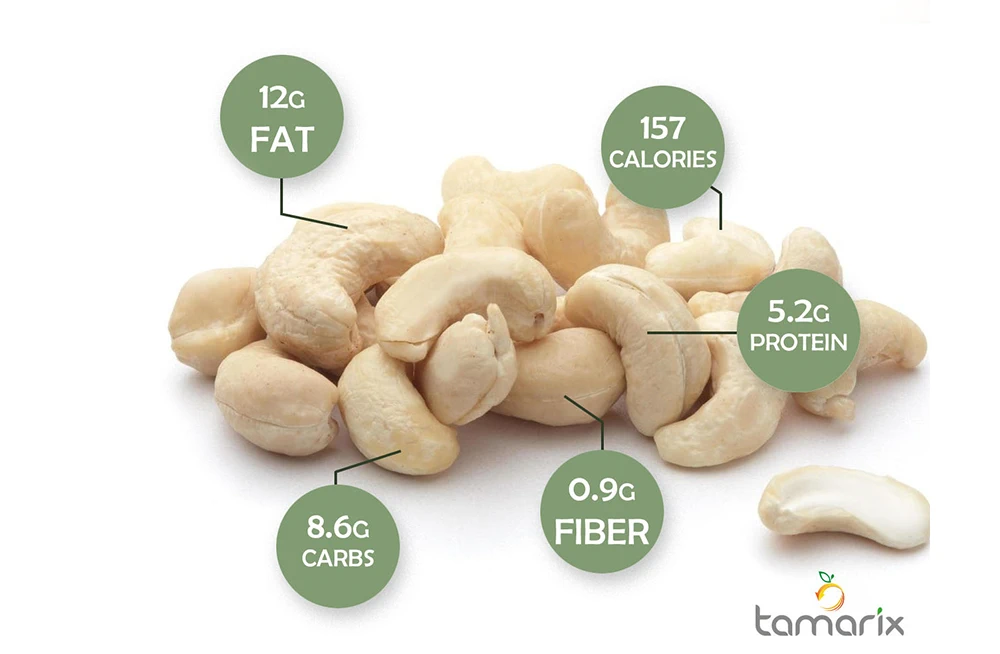Cashew nuts, known for their creamy texture and mild flavor, are a popular choice for people of all ages. These versatile nuts offer a range of health benefits and culinary applications.
Health Benefits:
Great source of Vitamin K
Good source of protein and healthy fats
High in magnesium and copper
May help lower cholesterol
Culinary Uses:
Perfect for snacking
Ideal for baking and cooking
Can be used in sauces, curries, and desserts
Experience the rich, buttery taste of cashew nuts and elevate your culinary creations.
Industry Uses:
Cashew nuts are renowned for their creamy texture and mild flavor. They are widely used in:
Food Industry: Used in baking, confectionery, and as a snack.
Cosmetic Industry: Used in skincare and hair care products.
Food Processing Industry: Used in cashew milk, cashew butter, and cashew cheese.
Cashew Nuts: A Closer Look
While there isn’t a specific variety of cashew nut like there is with almonds or pistachios, cashews are primarily classified based on their size and quality. These classifications often dictate their price and usage.
Here are the most common classifications of cashew nuts:
W-180: Often referred to as the “King of Cashews,” these are the largest and most expensive cashews.
W-210: Also known as “Jumbo” cashews, these are slightly smaller than W-180 but still considered large and premium.
W-240: A popular choice due to their good size and reasonable price.
W-320: The most common type, offering a good balance of size and price.
W-450: The smallest and most affordable type of cashew.
It’s important to note that these classifications are based on the number of kernels per pound. Larger numbers indicate smaller kernels. Additionally, cashews can be further categorized based on their color (white or scorched) and their shape (whole, broken, or pieces).




